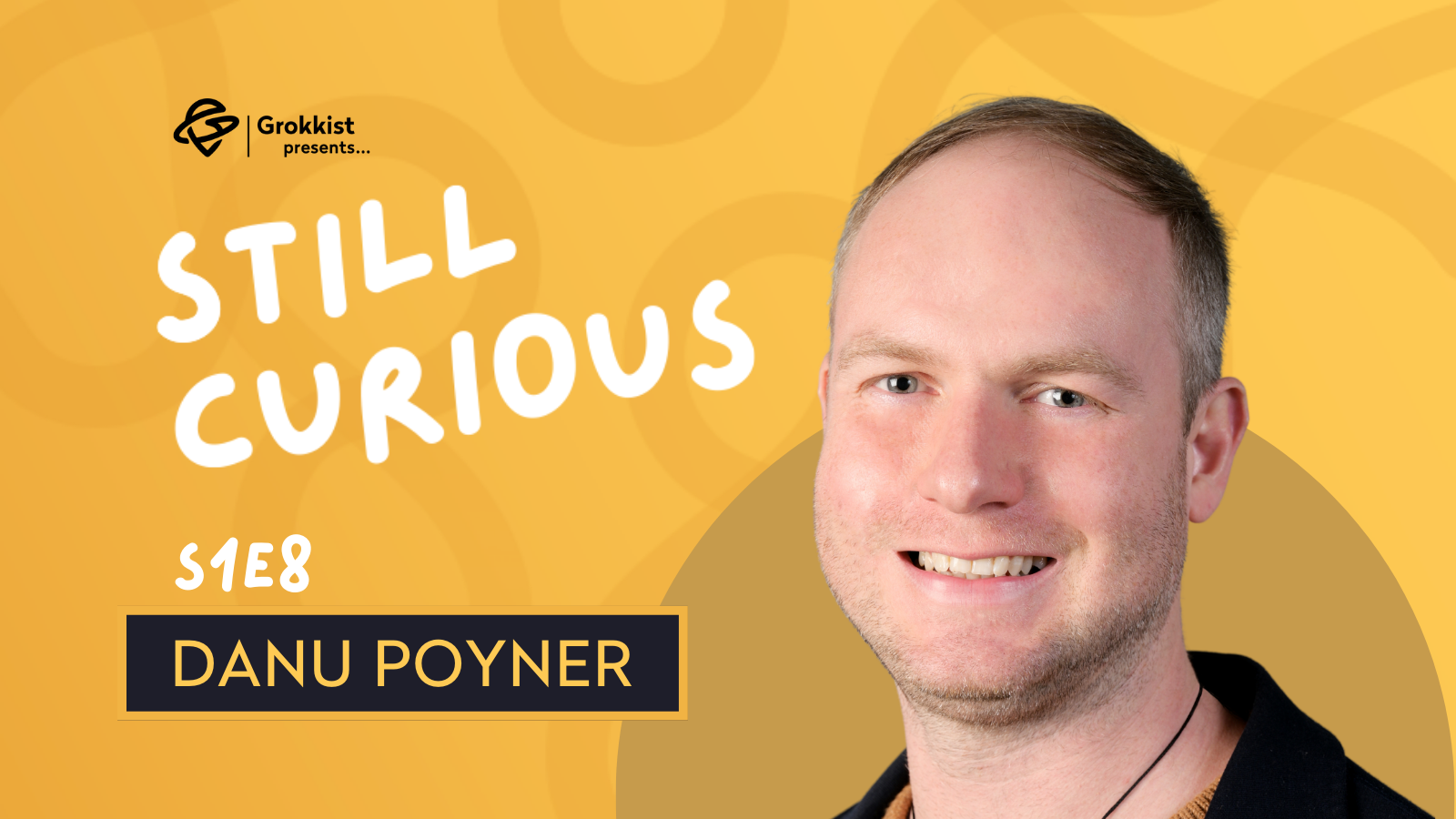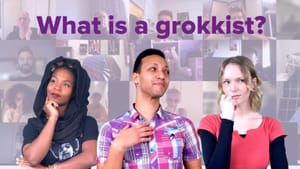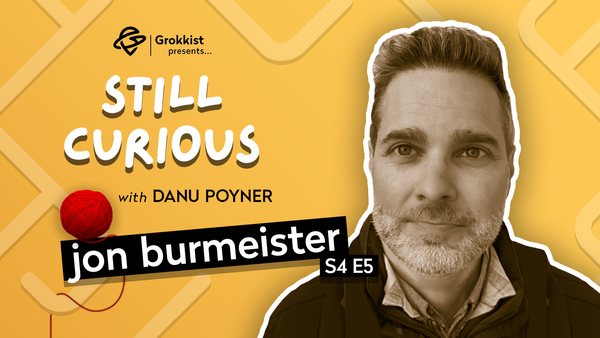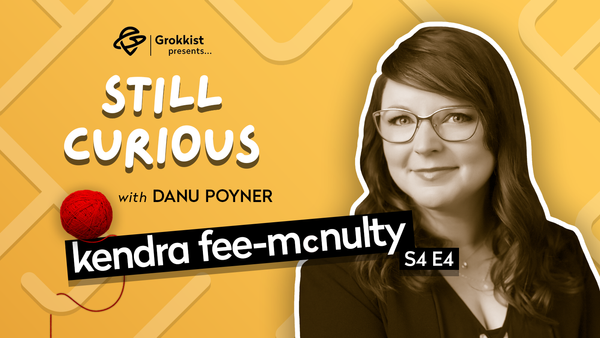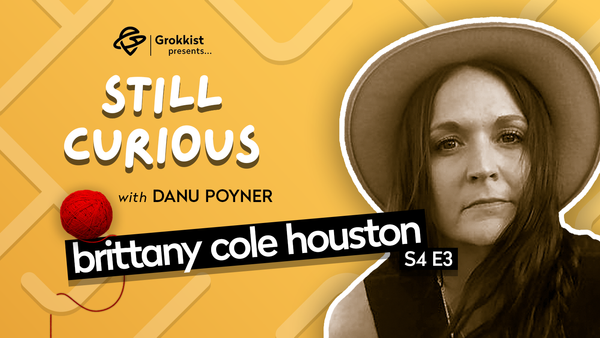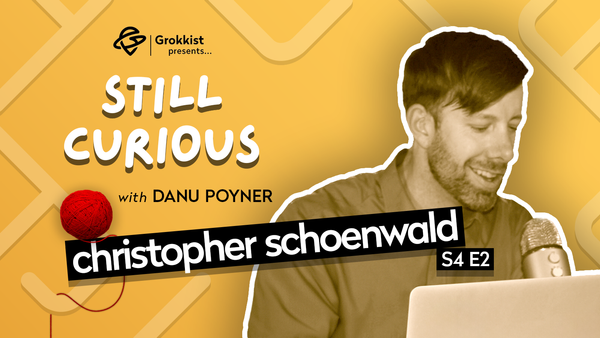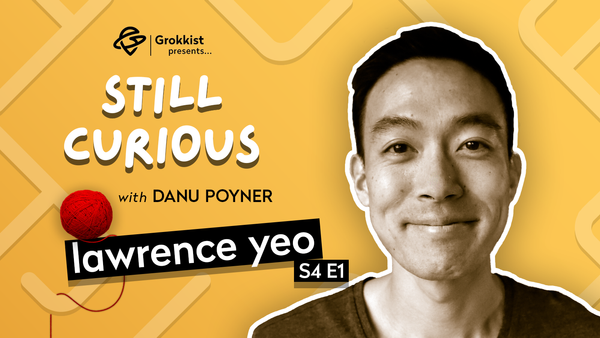Listen Now
About the Episode
Recorded 7 November 2021
Episode Digest
Why we need an ethical imagination
- It’s often quite difficult in life to find someone who cares. We may care deeply, but we move within systems and structures that don't.
- Social systems in the end are just people and the patterns that play out in the millions of tiny interactions between them.
- The way we live our lives and the actions we take each day, are our lived experience of what we have learned about the world. No matter what the world believed it was teaching us, the lives we lead are the learning outcomes.
- If our curiosity is to connect us to the world, then we need not just an imagination but an ethical imagination. Ethics is what we need to imagine the alternatives that many of us desperately wish to exist.
How an uncaring teaching system kills curiosity
- If you want to make absolutely sure that you'd kill any chance for curiosity, focusing on the outcome in advance is one of the very best ways to do it.
- The default classroom teaching ritual: We pretend to learn and they pretend to teach us.
- In the default system, we assume the teacher has a stockpile of knowledge. There's some kind of rationing process by which this pile of knowledge is doled out to students in lumps over a set period (curriculum).
- At the end of a set period through the alchemy of teaching, students are also supposed to possess the agreed-upon knowledge.
- To demonstrate that this exchange of knowledge has been successful, students undergo a series of spot checks along the way where they are required to hold up certain bits of the knowledge at short notice for inspection (assessment).
- If it seems enough of the knowledge has made it across, we give them a certificate.
- Teaching in this sense is essentially an authoritarian exercise while learning effectively amounts to a process of becoming disciplined to the mould set by the curriculum.
- This power relationship is neatly encapsulated within the innocent sounding phrase 'learning outcomes'.
The truth about learning outcomes
- What I think I am teaching doesn't necessarily have anything to do with what you end up learning from the experience.
- What gets learned is up to the learner. For example, you might learn that I am a terrible teacher who doesn't care about you.
- Like children, we are learning all the time, regardless of whether there's any teaching happening.
- No matter what the world believed it was teaching us, the lives we lead are the learning outcomes.
A shout-out to people who care within uncaring systems
- We need to distinguish between caring people and caring systems.
- We are all good at telling within minutes, if not seconds, whether someone interacting with us in a system cares about us or not.
- It is through the daily struggle and suffering of people such as professional teachers, who care but have to do so in a system that doesn’t, that the world we live in really turns at all.
- Knowledge isn't a Thing. It isn't the content. Knowledge is action. It's something you do. This is why we say 'by a person's actions shall we know them'.
- Each of us knows intrinsically what good learning looks like and how to instantly recognise the people who make it possible. It's most often a million miles from what happens in a classroom.
- We would do well to think about what it would look like to redesign our social systems away from an ethics of efficiency and instead to an ethics of care.
Stuff I Mentioned
Quotes
- “Unless someone like you cares a whole awful lot, nothing is going to get better. It's not.” - Dr Seuss’s the Lorax
Audio Highlights
Episode Appetiser - we live out everything the world has taught us (29 sec)
0:00
/0:29
What Danu hopes to achieve with the Still Curious podcast (58 sec)
0:00
/0:58
The default classroom ritual: we pretend to learn and they pretend to teach us (58 sec)
0:00
/0:58
The truth about 'learning outcomes' (56 sec)
0:00
/0:56
Why teaching is caring (59 sec)
0:00
/0:59
Interactive Transcript
Note: This is a machine-generated transcript and may contain errors.


